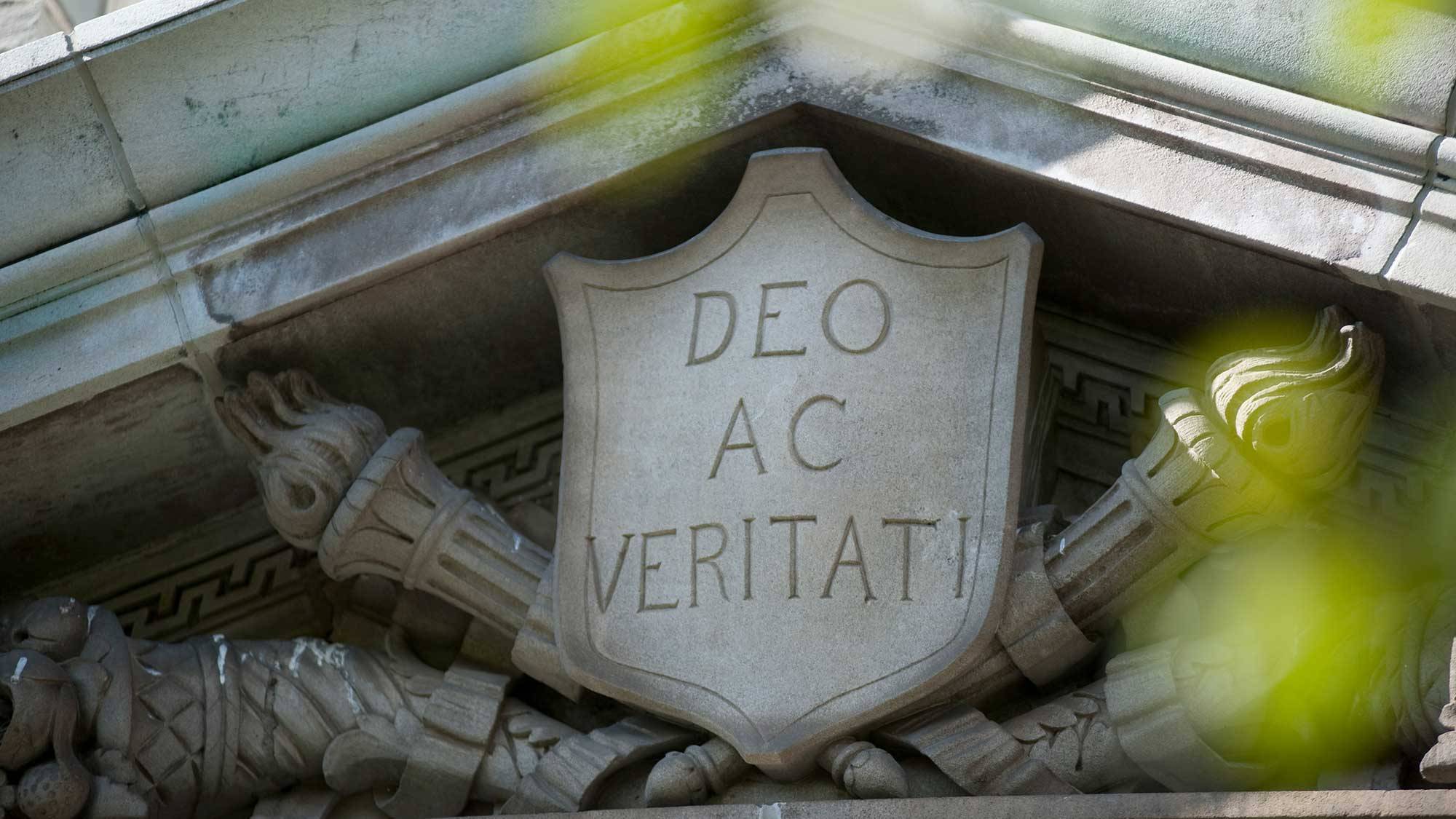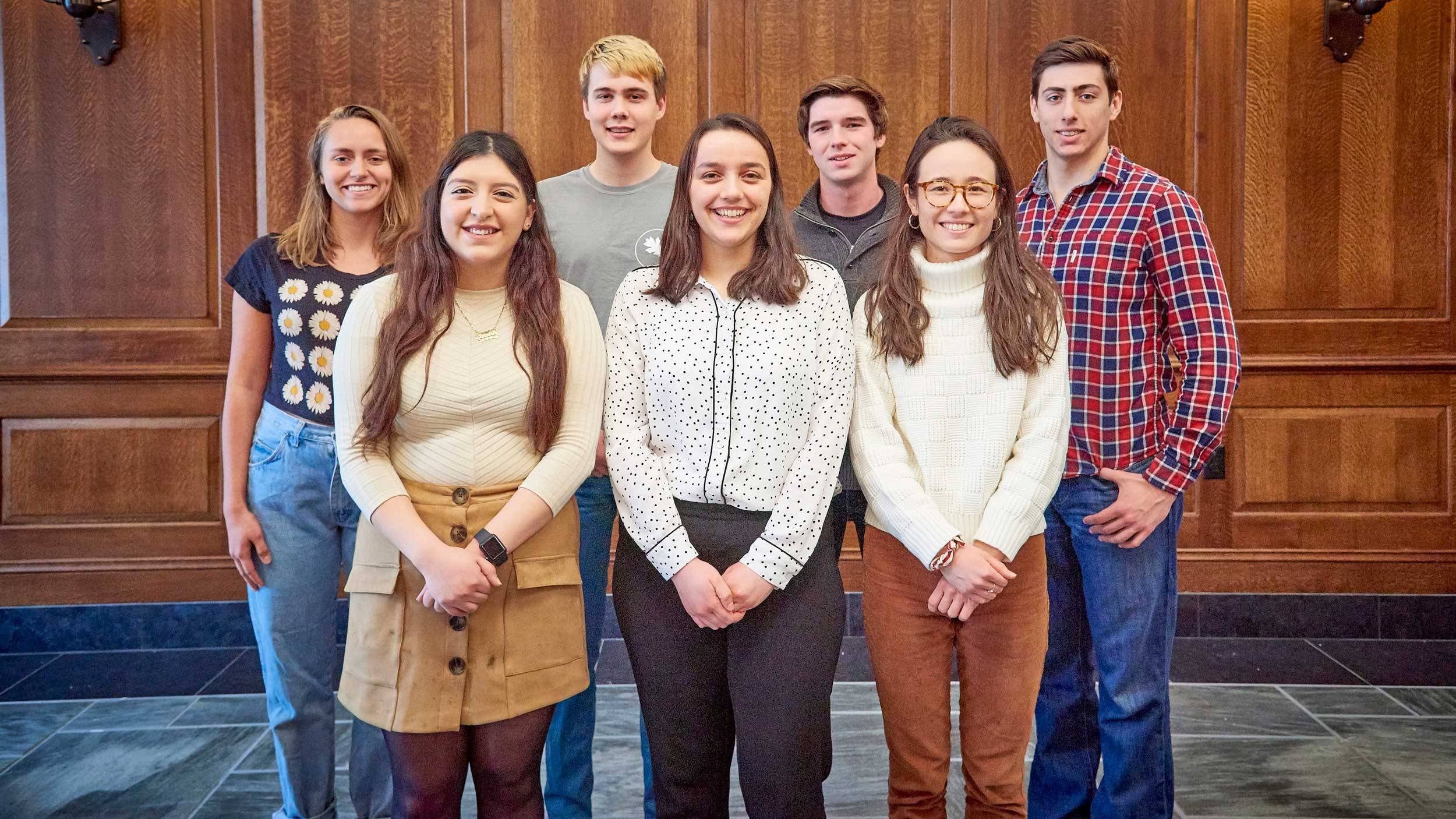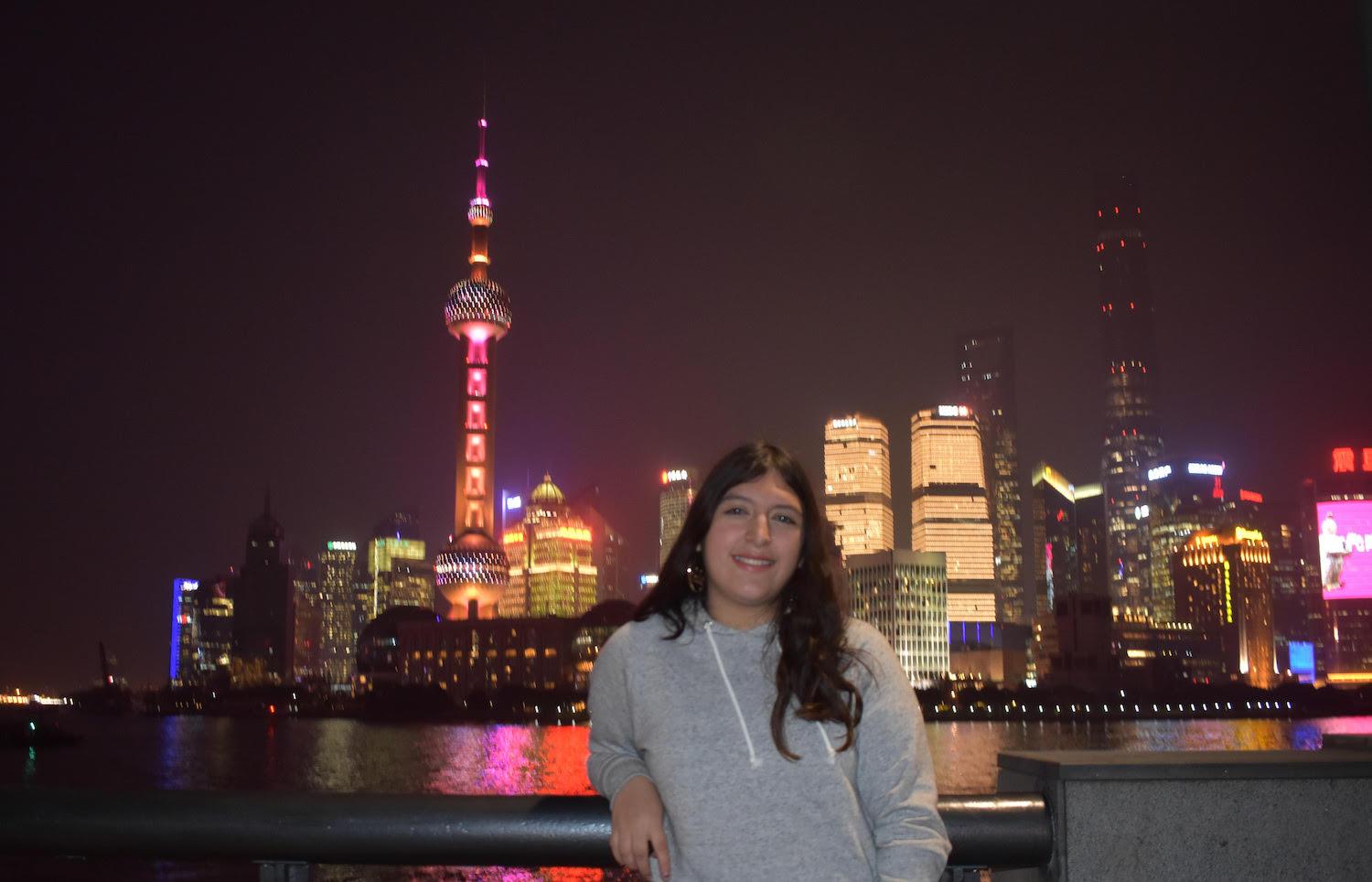After graduation, William Rosencrans ’19 will spend a year conducting biomedical research at the National Institutes of Health (NIH) in Bethesda, Md., as a 2019 Intramural Research Training Award (IRTA) recipient.
Rosencrans, a physics major and biology minor from Glen Head, N.Y., has previously conducted research with Colgate’s NIH Study Group in the Section on Molecular Transport with principle investigator Dr. Sergey Bezrukov. Last fall, he devoted more than 30 hours a week to researching how certain drugs affect mitochondria function.
“The mitochondria are important in a lot of diseases of aging, such as cancer, Alzheimer’s, and Parkinson’s,” Rosencrans said. “I was screening for drugs that should affect the mitochondria function as a way to treat Parkinson’s disease.”
Upon his return to Bezrukov’s lab this summer, Rosencrans will take his research in a slightly different direction, thanks to an unexpected discovery he made in 2018.
While checking the function of the voltage-dependent anion channel (VDAC), a membrane channel in the mitochondria that allows the mitochondria to communicate with the rest of the cell, he found that a variant of VDAC had unusual, dynamic properties. The discovery could explain why no other research group had ever reported being able to crystalize the protein and may help further the Bezrukov lab’s understanding of mitochondria function.
“The entire lab came to watch my experiments because they wanted to see it happen in real time — they didn’t believe I was getting this interesting result until they came to watch it themselves,” Rosencrans said. “It was really supportive but also intense.”
Rosencrans values the collaborative environment at NIH, calling the community of thousands of scientists, “the greatest location for science.”
“There’s a specialist in every topic,” he said. “I met a 2017 Nobel Prize winner [Michael W. Young] because I ran into him after a talk at the NIH library.”
Rosencrans’ interest in biomedicine stems from his four years of cancer research in a laboratory with Colgate Associate Professor of Biology Engda Hagos. Rosencrans also explored his biophysics interests while abroad in Singapore as a junior, researching how DNA molecules switch between compact and loose states.
During his year of research through the IRTA program, Rosencrans will be applying to PhD programs to further pursue this passion for biophysics. In the meantime, he’s excited to get back to his research and see where it takes him.
“I feel like I found my fit in this lab,” he said. “It’s a great environment.”
Colgate students and alumni have been awarded many of the most competitive national and international fellowships and scholarships. For more information, visit the Office of National Fellowships and Scholarships.


